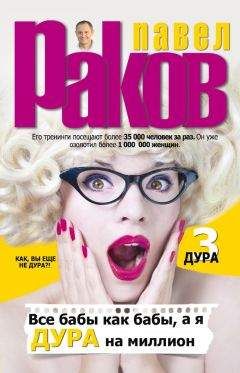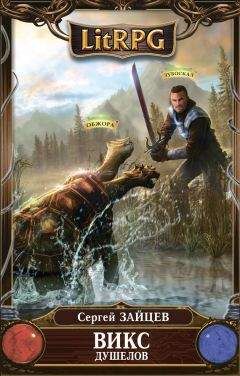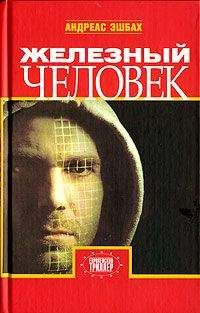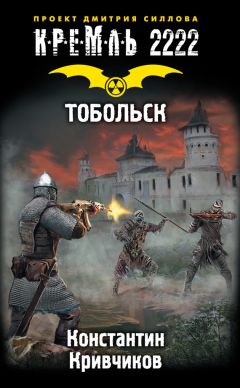Ed Lacy - Breathe No More My Lady
“Oh, you're talking like a European!”
“Indeed I am! Sure this is an exciting country but... for all your marvelous plumbing and fancy cars, you live without dignity, must vacation on a psychiatrist's couch. The great American small talk: how many times has one been through analysis! My father makes few francs as a school head. In his house there is not any new furniture, nor even an ice box, nor a TV set, and most times no hot water. Yet my parents live. Norm-man, can't you understand what it means for two people to find warmth and dignity in each other, in their lives? To have a flat that is not merely a cocktail lounge or a place to sleep, but a home? To—to—” She suddenly held her face and lapsed into gushing, hysterical French.
Feeling hysterical myself, I raced across the room and held her tightly. “Michele, my darling Michele, the heat takes it out of all of us. Guess it was a mistake for you to teach summer school. Now get a hold of yourself. After all, in two weeks you'll be in Paris, then in the south of France with your folks. Things will look different. When you come back, we'll talk this through.” My hands stroked the small of her back.
She pushed me away, her body actually shaking with sobs.
It was the first time she had ever pushed me from her and meant it. I said coldly, “Don't feel so damn sorry for yourself. Who am I ambitious for? Myself? It's for us, for you! Can't you get that through your head?”
She raised her wet face, and the tears seemed to make her more lovely than ever. “And can't you get it that I love you so much it is a torture not having children? I married you, not a.. a... medicine chest.”
“All right, honey, I'm with you, remember? Cut the tears and... I never knew it meant so much to you. Tell me, suppose it turns out we can't have kids? I mean, if we try for real. Then what? Are we finished?”
“If that is nature's wish then.... Oh, Norm-man, Norm-man, it is not only the matter of children. It is... sometimes I think we live like man and mistress instead of husband and wife.”
“Lord! Isn't that a peachy little thing to say!”
She turned away, muttering something in weary French as she closed the bedroom door. I understand French fairly well, when she speaks slowly. At least I can get the drift. I heard myself yelling after her, “What was that? What did you say?”
Through the closed door she whispered, “It does not matter. You can only understand what you want to see.”
“Yeah? And what the devil do you see except your own nose?”
There wasn't any answer. I waited a few seconds, then went back to the table and jammed some tobacco into my pipe. I was sweating like a pig. I took a can of beer and drank it slowly, standing in the kitchen doorway that led to the garden. I stared at the lighted windows all around us, most of them open, and wondered how many people had heard us. I'd never seen Michele like this before, but the more I thought about things, the more indignant I became. I mean, what the hell! Where did she come off giving me that? Anybody listening would think I was giving her a hard time! That I was a penny pincher or a bottle-head! That I ran around with bimbos! Here she practically blew a fuse, and over what? Exactly what? That I didn't jump through the loop when she mentioned a house or a kid! It was positively an uncalled for—
I heard the bedroom door open. Stepping back into the apartment I told myself to cut it out; sometimes women get cranky and have no control over.... She was slipping on her gloves. Michele was not only dressed, but she had a suitcase beside her. “Where do you think you're going?”
“To the airport. I phoned—there is the possibility of a cancellation on a Paris flight. Please do not try to stop me.”
“What the devil makes you think I want to stop you!”
Michele stared at me for a moment, her eyes sad and troubled. I thought she was going to bawl again. All she did was to say softly, “Au revoir. Norm-man,” and walk out of the apartment.
The closing of the door hit me like a kick in the stomach. Then I laughed out loud, a shrill nervous laugh, as I thought: She's only bluffing. Heu, European women never take the initiative, walk out on a marriage. Oh, that's a bunch of nonsense. Michele has to be bluffing, we've had it too good for it to be otherwise. A bluff. My God, of all the melodramatic corn—and she had the gall to complain about the TV show! Maybe I should have stood up to her more? But this caught me completely unprepared. Anyway, I couldn't be hard with Michele. I suppose I'll have to drive up with her and see this stone outhouse Saturday. Summer is half-over, I can stall until next Spring. When she comes back I'll tell her I want to see the house. She'll return by midnight Taking a suitcase!
But a few minutes after twelve when I turned off the commercial-ridden old movie on the TV screen, I wondered what I should do. “I suppose I should get crocked,” I said aloud. The words made such a lonely ring in the quiet of the apartment the very sound frightened me. And there was only a half a bottle of vermouth around, and some cooking sherry. Neither of us drank very much.
I stretched out on the bed, telling myself, “She's checked the bag and is walking around, acting like a kid. No point in my being childish too. Let her come home and find me asleep, as if nothing happened. She's gone to a movie. Or maybe visiting this Edith, or that UN couple she likes so well, I can phone and.... But how would that look? Damn, damn, we never had a spat anything like this before.”
At 3 p.m. I could no longer endure the waiting or the hot silence of the apartment. I dressed and went out. It was too late to get drunk now, even if I wanted to. I walked across town and up a deserted Broadway, which further depressed me. At 72nd Street I decided I couldn't take it, that I would phone the house and agree to anything Michele wanted. While I still didn't understand what had come over her, still, she always was a level-headed kid, so maybe I was the jerk.
I phoned and there wasn't any answer. I tried to tell myself she was spending the night with Edith, but I was frightened and jittery. I started walking back downtown and suddenly went into a Turkish bath. I sat in the hot room for a while. I was alone and trying to think—and all I could think of was I must be in Hell. At 5 a.m. I went up to my room and fell into an uneasy, exhausted sleep. When I opened my eyes it was 9:45.
Miss Park opened the office door. “Mr. Connor, Mr. Kuan is on the phone. Do you want to speak to him?”
“Damn, the last thing I need is a game of handball! Tell Mm I'm tied up in a sales... no. I'll talk to him.” I waited until Miss Park left, then picked up the phone, trying to choose the right words. For a new thought had entered my head— Francine Anthony's death could very well be the solution to my own problems.
“Frank? Norm Connor here. Sorry as all hell I didn't get a chance to phone you back but I'm jammed up to my ass with work. Guess you've read about the Matt Anthony mess? Well, there's all sorts of complications here and I've been busier than a whore on a battleship.” I threw in a few more cuss words, trying to make it all sound like 'man' talk, and inwardly a trifle ashamed of the phony act I was putting on. The trouble was I hadn't decided what my play should be; impress Frank with the fact this had to be my own decision, or should I play the young squirt asking the seasoned older executive for advice?
Frank said he was busy as a bastard himself and needed a workout to shake up his brains. It would do me good, too. He finished with, “I've reserved a court at the Midtown for 1 p.m. Can you make it?”
“I think I can make time for it. You're right, be the change of pace I need. But only one game.”
“Fine. Then we'll lunch at the Ad Club. By the by, I'd like to read the Moorepark novel you have scheduled for September. Judging by the catalog blurb, it will be a shocker. Can I get a copy of the galleys?”
“I'll see if I can sneak out a copy. But I'll have to have it back within a week.” A deadline always seemed to heighten Frank's enjoyment of a book.
“Of course. One sharp, Normboy.”
Hanging up I phoned the sales department for a copy of the galley proofs, told them, “And give me one that's marked up, if you can.” The higher up you went the more obvious was the childish side of big money men. Or was it that I didn't expect to find any defects in the big shots? I never could figure who Frank impressed by reading galley proofs, unless it was himself.
Now that I had a plan in mind, I felt much better. Leaving my office I told Miss Park to see if the afternoon papers were out, and stopped at a vending machine in the hallway. I ate two chocolate bars for energy. I dropped in to see Maggie Gordon, who handles our mystery books. Maggie is a large woman with a plump face and a clear, perfect complexion, who goes in for tweedy skirts and long cigarette holders. She still speaks with a soft southern drawl, although she left Alabama more than a quarter of a century ago.
“Mag, has Bill mentioned the possibility of reissuing one of the Matt Anthony books?”
“Aha. I've checked with the paperback house that publishes Matt—naturally they're planning to cash in on the notoriety, too. They're going to put out a novel called—”
“We don't intend to cash in on any notoriety, Mag.”
She gave me a fat wink. “Come, come, Norm, you talk your way and I'll talk mine.” Mag held up a slim book with a mild pink dust jacket. The cover was a kind of surrealistic picture of a big-eyed, solemn-faced young girl leaning against a yellow mud adobe hut. She was gazing at a desert sun, very red and hot. A lean girl in smartly styled jeans and a chic blouse, she looked like a fashion model—except for a small gun in a jeweled hip holster. The girl and the clothes were in sharp contrast to the deadly gun, the plain hut. The title, The Last Supper, was printed in small, old fashioned type. “This is one of his better books, Norm, in fact the best he ever did for us. Unfortunately it came out a few days before the Korean war and was lost in the shuffle. I like the jacket and the plot has a beautiful gimmick.”
I thumbed through the novel. “This was before my time here. What's it about? Not wife killing, I hope.”
“Naw. A gal who is a religious fanatic kills a young professor who is about to prove one of the Disciples intended to poison Christ during the Last Supper. Wonderful snapper: she kills the guy with a diamond bullet.”
Mag looked up at me as if expecting a shout of joy. “She killed him with... a what?” I asked.
“A diamond slug. Being harder than the steel of the gun, the diamond completely changed the ballistics of the murder weapon, throwing the cops into a tizzy. Far-fetched, but it reads fast and well. Do you know Matt made a thorough study of the Bible for this book?”
“Can you spare this copy?”
“Along with 3489 unbound copies in the warehouse. Is all this definite, Norm?”
“No. Far from it. It's an advertising thing. Of course I'll let you know the moment it is decided.”
As I reached the door, Maggie said, “Knew I had something to see you about. I have a French suspense novel that didn't do well on the other side, but my scouts swear it's a damn good yarn. Would Michele have time to read it for me?”
“Too bad you didn't tell me yesterday, she's in Paris now —or will be in a few hours. Her parents aren't feeling too well. I had to take her to Idlewild at five this morning.” And my God, how the words dragged in my mouth like rotten cotton!
“Lazy-me, the lousy book has been on my desk for a week. Well, it can wait until she returns. Wish I could pick up my fat-self and put it down in Paris. Or Rome. I like Rome even better.”
“Michele may be gone the balance of the summer,” I said, leaving her office. The balance of the summer or the rest of my damn life?
I stopped at the promotion office to pick up a background file on Matt and when I returned to my office, Marty Kelly was waiting on the phone. He said, “I hear we're going to do pages of advertising around Matt Anthony. When do we start? Like to talk it over at lunch?”
“The goddamn office grapevine,” I said, making with a mock groan. “Not true, Marty. We may do something. Right now everything is up in the air. And keep it quiet. I mean that.”
“I get the message. How about having chow with your old boss anyway?”
“Remember that another day, I'm tied up for lunch,” I said, wondering if I should tell him I was eating with Frank.
“I'll drop in to see you in a few days. I have some layouts on that prize book campaign I want you to okay. And listen, we can really go to town on Anthony, he's made to order for publicity.
“I'll let you know, Marty.”
I got a pipe working, opened my shoe laces, leaned back in my leather chair... and started reading the Matt Anthony file.
The son of a rural mailman and farmer, Matt had been born in a small upstate town near the Canadian border 51 years ago. He studied at Cornell on a state agriculture scholarship but dropped out after two years to go to sea. He entered NYU fifteen months later, working as a longshoreman to pay his tuition. He married a waitress for six months. When he was 27 he became an English instructor at Brooks University, a small but heavily endowed Midwestern school. It was about this time that Matt started publishing in several literary quarterlies and soon gave up teaching to become a full-time writer. Anthony was very prolific, selling over a million words to the pulps within two years, along with a sale to Collier's. (I stopped to figure a million words at about a cent a word was... ten thousand, or about five thousand a year. Not bad for those days—or these days, I guess.)
He worked on WPA for a few months (with that income?) and went to sea again during the tail end of the depression. His first mystery novel had for its background the teenage-hobos criss-crossing America in search of jobs. The book received only two reviews—mysteries were rarely reviewed then—both of them excellent. In 1937 he started making 'headlines.' He married a minor starlet in Mexico and was deported several days later for sending three policemen to the hospital during a drunken brawl. Matt himself spent several weeks in an El Paso hospital suffering from a concussion. That same year he placed in the Albany-New York outboard race, sold two books to Hollywood, and authored a radio serial called 'Private Gun.'
By an odd coincidence, he next made headlines the same week one of his books was published by punching a British police official in Africa, who was supposed to have been flogging a native. There was a one-day fuss until the State Department secured Matt's release. Some months later, he made the papers again when a bank was looted in a small California town. Matt Anthony the detective story writer was passing through and was 'asked' to give the local police a hand. There wasn't any mention in the file as to whether the bank robbers were ever captured.
Francine had been married to a little known and alcoholic novelist. Mart's name was in the columns now and then, squiring some pretty actress around, so it was a mild shock (to whomever was interested) when he married the not-so-glamorous Francine three weeks before Pearl Harbor. Months later they were both in England, Matt an accredited war correspondent for a small feature syndicate. He went to Africa, to Italy—where he was hospitalized after too much drinking hardened his liver. He made headlines again when he was attached to the famed 442nd Combat Team in Northern Italy. He had been-in a machine gun nest when a direct mortar hit had killed the soldiers and slightly wounded Matt. According to one news dispatch, Matt had gone 'fighting mad' and like a movie hero had picked up a tommy gun and charged. There was some doubt as to whether he had killed two Nazi soldiers, but he had wounded and captured a German officer and had to be restrained from killing him with his bare hands.




